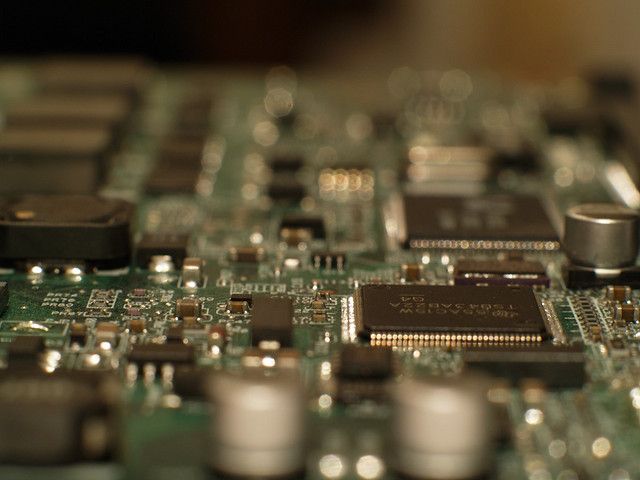Samsung will snap up the majority of the next generation iPhone A9 chip orders, while Taiwan Semiconductor Manufacturing Company (TSMC) will manufacture the chips for the next iPad devices, according to a new report coming out of China.
This differs from the current iPhone 6 devices, where TSMC is reportedly responsible for producing the A8 chips thanks to a deal inked in 2013.
Although it was previously reported that the two companies were locked in a tussle to pick up the Apple orders, Samsung apparently beat out TSMC by quoting Apple lower prices for the 14nm FinFET process production. Samsung has upped its game to secure Apple orders following its posted dismal Q3 earnings, which were down a whopping 60 percent in operating profit from the same period in 2013.
Today’s report notes that TSMC will begin to tape-out 16nm FinFET process products for the new iPhone as early as this December. TSMC has invested heavily in the necessary equipment to build Apple’s next generation chips.
The next generation iPhone and iPads will likely land in September and October 2015, if previous years’ releases are anything to go by.
Is it wrong that I’m already kind of excited?



4 responses to “Samsung reportedly grabs piece of Apple’s A9 chip pie”
“Samsung will snap up the majority of iPhone 7 A9 chip orders”
In September 2015, there will most likely be iPhone 6s and iPhone 6s Plus, using A9 processors, not iPhone 7. iPhone 7 should be introduced in September 2016.
Right?
Well, for some reason, Luke removed the quoted text at the beginning of my post.
But the line under the photo still makes reference to the iPhone 7, for some reason:
“Samsung will snap up the majority of iPhone 7 A9 chip orders”
Don’t be too sure that they are going with the iPhone 6S and 6S Plus naming convention. Just call them the 7/7+. I am wondering if Apple’s gonna change the 6/6+ to a 6C/6C+ and make them out of polycarb, increase the battery size and drop the price when the new models emerge.
I guess Apple has to throw Samsung a bone because Samsung is losing their shirts on the S5 since they’re sales dropped off to practically nothing.
Apple isn’t going to change to polycarbonate on the 6/6+. People also thought they were going to do that with the 5S this year and that didn’t happen. There won’t be any design changes to next year’s iPhones (besides possibly some extra, internal reinforcing). And until Apple does change the pattern, the name of next year’s models is most likely to be the 6S/6S+. Speculating about changes without any evidence of change, when Apple has been consistent for years, is just dumb.
Samsung is the underdog.
1. At 28nm, TSMC mass produced logic chips for customers on October 24, 2011. Samsung did not mass produce 28nm chips until two years later.
2. At 20nm, TSMC has been mass producing chips for customers since January 16th of this year. Samsung’s process technology is a mess and they have declined to mass produce 20nm chips for any customers. Samsung is one year or further behind TSMC. We are talking about a two-year lag if the standard is comparable yield per wafer.
3. If you read SemiWiki, 30-year semicondcutor-industry veteran Daniel Nenni recently reported on November 5th that Samsung yields at 14nm FinFET are terrible. The original source of the information was the CEO of Ultratech on a quarterly conference call. Through deductive reasoning, Daniel Nenni was able to identify Samsung as the struggling foundry and its inability to obtain reasonable yields at 14nm FinFET.